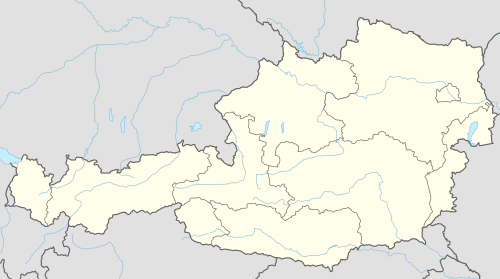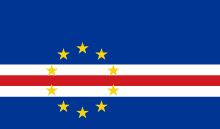Deutsch-Wagram
| Deutsch-Wagram | ||
|---|---|---|
 Town hall | ||
| ||
 Deutsch-Wagram Location within Austria | ||
| Coordinates: 48°18′N 16°34′E / 48.300°N 16.567°ECoordinates: 48°18′N 16°34′E / 48.300°N 16.567°E | ||
| Country | Austria | |
| State | Lower Austria | |
| District | Gänserndorf | |
| Government | ||
| • Mayor | Friedrich Quirgst (ÖVP) | |
| Area | ||
| • Total | 30.61 km2 (11.82 sq mi) | |
| Elevation | 159 m (522 ft) | |
| Population (1 January 2016)[1] | ||
| • Total | 8,229 | |
| • Density | 270/km2 (700/sq mi) | |
| Time zone | UTC+1 (CET) | |
| • Summer (DST) | UTC+2 (CEST) | |
| Postal code | 2232 | |
| Area code | 02247 | |
| Website | www.deutsch-wagram.gv.at | |
Deutsch-Wagram (literally "German-Wagram") is a town in Austria, in the Gänserndorf District of the federal state of Lower Austria. It is situated in the Marchfeld basin close to the Vienna city limits, about 15 km (9 mi) northeast of the city centre.
History
The settlement was probably established in the Bavarian March of Austria by colonists in the course of the Ostsiedlung. Wagram was first mentioned in a 1258 tithe register, drawn up when King Ottokar II of Bohemia ruled over the Austrian duchy. It was named after a now silted up meander of the Danube river, where the waves (German: Wogen) crushed against the shore (Rain). In 1560 it received the prefix Deutsch- to differ it from Kroatisch-Wagram (today part of Eckartsau), a village founded by Croat settlers in the course of the 1529 Ottoman Siege of Vienna.
In 1580 the population turned Protestant but was forcefully converted in the Counter-Reformation under the Habsburg emperor Ferdinand II shortly afterwards.
Deutsch-Wagram was the location of the 1809 Battle of Wagram fought between invading French troops under Napoleon and an Austrian army led by Archduke Charles.
The population rose after the area was connected with the Austrian capital by the opening of the Emperor Ferdinand Northern Railway (the present-day Austrian North Railway) in 1837. The former village was elevated to the status of a market town in 1929 and received town privileges in 1984. The firearm company Glock was founded here in 1963.
Politics
Seats in the municipal assembly (Gemeinderat) as of 2015 elections:
- Austrian People's Party (ÖVP): 19
- Social Democratic Party of Austria (SPÖ): 6
- wir4dw (independents): 4
- Freedom Party of Austria (FPÖ): 2
- The Greens: 2
Twin towns
Deutsch-Wagram is twinned with:


Notable people
- Johann Sahulka (1857–1927), electrical engineer
- Thomas Forstner (born 1969), singer
Residents
- Jürgen Melzer, a Vienna-born tennis player
See also
References
External links
| Wikimedia Commons has media related to Deutsch-Wagram. |
